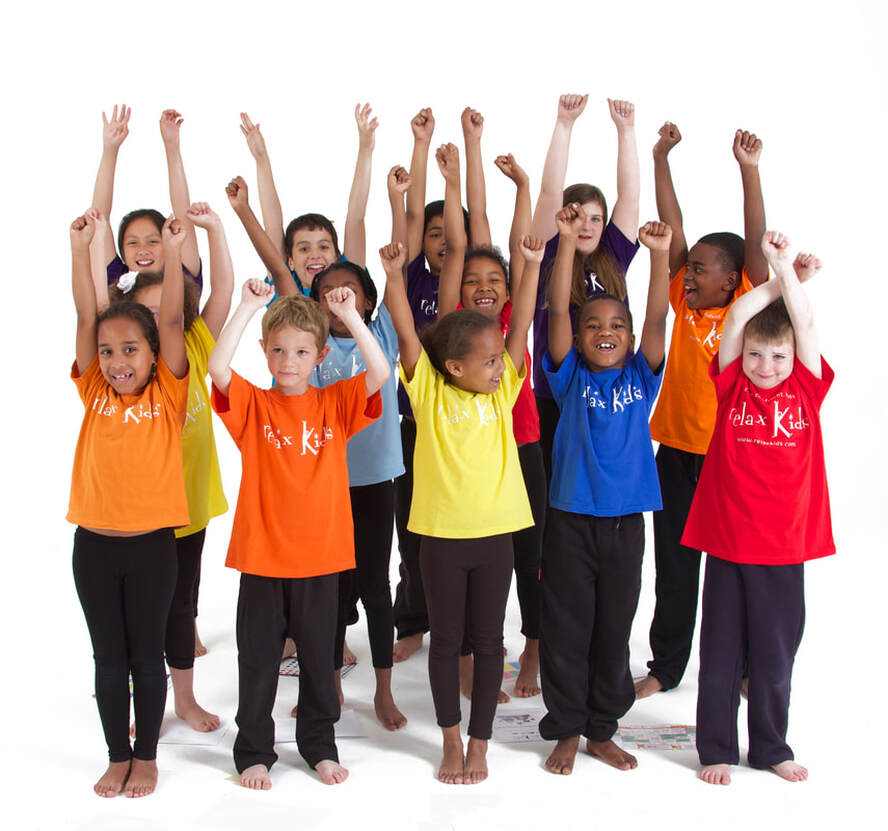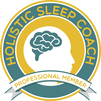|
Relax Kids uses a unique method to take children from high energy and stress levels to a state of relaxation that has been shown to have a positive impact on children’s mental and emotional health and wellbeing. The process involves movement exercises, social games, stretching, peer or self massage, breathing exercises, affirmations and relaxations including visualisations, mindful and autogenic exercises, all elements of which are evidence-based and play an important part in self-regulation. Sessions are fun, interactive and inclusive and enable the child to engage and to fully experience the change for themselves. The 7 steps have been shown to have a positive affect on children’s mental and emotional health and wellbeing and this is why I advocate them when supporting sleep. The Relax Kids 7 steps are laid out in a certain order to work with children’s natural energy systems. The movement and games stimulate the sympathetic nervous system, stretching exercises encourages their muscles to stretch and stimulates the sympathetic and parasympathetic nervous systems. Massage helps release oxytocin and ‘happy chemicals’ such as serotonin and dopamine and breathing exercises stimulate the vagus nerve and lowers the stress responses. Positive affirmations further encourages the release of endorphins as children think and speak positively and finally the relaxation and visualisation exercises at the end, allow children to calm their inner alarm system and get into a state of deep relaxation. MOVE and PLAY Our first two stages harness kids’ natural energy. Exercise and physical activity cause the hypothalamus to release endorphins, which are our bodies’ form of natural pain relief and pleasure chemicals. Exercise is often used as a treatment for depression and anxiety. Exercise has also been proven to have a positive effect on the concentration levels of children with ADHD and other attention span disorders (1), and promotes generally better concentration levels throughout the rest of the Relax Kids session. STRETCH Muscle stretches have many of the same positive effects as higher intensity exercise. Relax Kids’ stretches are adapted to be effective and non-strenuous for children. Recent trials have found that yoga stretches have a generally positive effect on treating depressive disorders (2), and can also be used effectively to target symptoms of PTSD (3). It is also a calming warmdown activity that transitions into the following stage. FEEL The ‘Feel’ stage of the Relax Kids process involves consensual and clothed self or peer massage. This is an entirely optional stage that can be omitted for children with sensory issues. Massage and positive touch stimulates the long vagus nerve. This nerve is responsible for the lowering of the heart rate and blood pressure and the production of oxytocin, a chemical produced during positive social experiences, which includes positive touch. Studies have shown people artificially dosed with oxytocin had lower stress levels (4) and higher pleasure chemical levels(5). Oxytocin also promotes peer bonding, which is important for creating a safe social space within Relax Kids classes. BREATHE Deep and controlled breathing promotes full oxygen exchange, which slows the heart rate and decreases blood pressure. Both of these act as a sedative for the body and mind. Deep and slow breathing can be used as an effective way to manage anxiety disorders (6). BELIEVE The ‘Believe’ section of a Relax Kids class focuses on simple self - affirmations such as “I am special” or “I am a calm star”. These positive statements affirm perceived good personal qualities, improving self-esteem. Studies have demonstrated that positive affirmations can have a dramatic effect on achievement(7). A group of stressed pupils performed badly in a problem solving exercise. However, after doing the same activity following a brief self-affirmation exercise, the participants performed at normal levels. RELAX The ‘Relax’ stage consists of being led through a guided meditation either by one of our Coaches or by pre-recorded CD/MP3 tracks provided by Relax Kids. These tracks use a combination of mindfulness exercises, and progressive muscle relaxation to mentally and physically relax participants. Studies have shown that mindfulness can be effective in combating anxiety disorders in both adults (8) and children( 9)alleviating symptoms of depression(10), and reducing stress(11). A 2015 review of mindfulness research suggests that it has a generally positive effect on a wide variety of disorders (12) References:
1. Silva, A. P., et. al., 2015 “Measurement of the effect of physical exercise on the concentration of individuals with ADHD.” in PLoS ONE, 2015 Jul; 10(3) 2. Pilkington, K., et al., 2015 “Yoga for Depression: The Research Evidence,” 2015 Dec; in Journal of Affective Disorders 89, Nos. 1–3, pp. 13–24. 3. http://www.health.harvard.edu/ mind-and-mood/yoga-for-anxiety-and- depression Accessed 22/07/2015 4. http://positivepsychologynews. com/news/emiliya- zhivotovskaya/2012032321636 Accessed 22/07/2015 5. Field, T., et. al., 2005 “Cortisol decreases and serotonin and dopamine increase following massage therapy.” Oct 2005, in International Journal of Neuroscience 15 (10): pp. 1397- 413. 6. Busch, V. et. al., 2012 “The effect of deep and slow breathing on pain perception, autonomic activity, and mood processing - an experimental study.” Feb. 2012, in Journal of Pain Medication. 7. Creswell, J. D., et. al., 2013 “Self-Affirmation Improves Problem- Solving under Stress”, 2013, in PLoS ONE, 2013: 8 (5) 8. Strauss, C., et al., 2014 “Mindfulness-based interventions for people diagnosed with a current episode of an anxiety or depressive disorder: A meta- analysis of randomised controlled trials”. 2014 Apr; in PLoS ONE 9 (4). 9. http://www.bath.ac.uk/research/ news/2014/07/16/cbt-primary-schools/ Accessed 22/07/2015 10. Jain, F. A., et. al., 2014 “Critical analysis of the efficacy of meditation therapies for acute and subacute phase treatment of depressive disorders: A systematic review” in Psychosomatics 2014, pp. 297–302 11. Khoury et. al., 2015 “Mindfulness-based stress reduction for healthy individuals: A meta-analysis.” June 2015, in Journal of Psychosomatic Research, 78(6) pp. 519-28 12. Gotink et. al., 2015 “Standardised mindfulness-based interventions in healthcare: an overview of systematic reviews and meta-analyses of RCTs”. 2015 Apr; in PLoS One 10 (4). |
Categories
All
|
Site Links |
Copyright © - Nadia Edwards 2024, 3 Northbank Road, Cairneyhill, Dunfermline, Fife, KY128RN | Sitemap




